The Balance of Hope
(Le Guin features heavily)
Silence Within, Silence Without
I always end up with drafts and notes which never see the light of day. I have folders full, emails and messages I’ve sent myself, notebooks with scribbles, journals with fountain pen, Dropbox, Mega, iDrive, Google Drive, Onedrive and more.
I have a note-taking app on my phone with hundreds of notes, ranging from the briefest eight words to fifteen minute voice recordings and whole essays either dictated for voice-to-text, or furiously typed with thumbs. Post-its are rarely recycled, just stuck together like small books, I slip index cards into this journal, or between those pages, sure I’ll remember where that note actually went.
Whole trees-worth of A4 paper in this box or that. Scrivener is where my notes often end up loosely collated, the folder and project structure useful for taking them further, into drafts, rewrites, and edits. Oh, so many edits.
This year, my ‘published’ to ‘draft’ ratio on Substack is considerably skewed (especially once I include all the Scrivener entries which have been read by no one but me). I have far more drafts than essays or chapters of fiction, with months-long silences and barely a Note in between.
Normally, I would include something like these paragraphs at the start of a letter, an apology for my silence but, this time, I decided to write a whole essay about it, but not actually email said essay. Instead, it—this essay—shall be published to my Substack page and, eventually, to my website, which is forthcoming. I don’t want people to apologise to me for their silence, after all, there is no need—I get it. There are many reasons for such a pause, and they are all valid. Just jump straight into the new work. And that is what I have done.
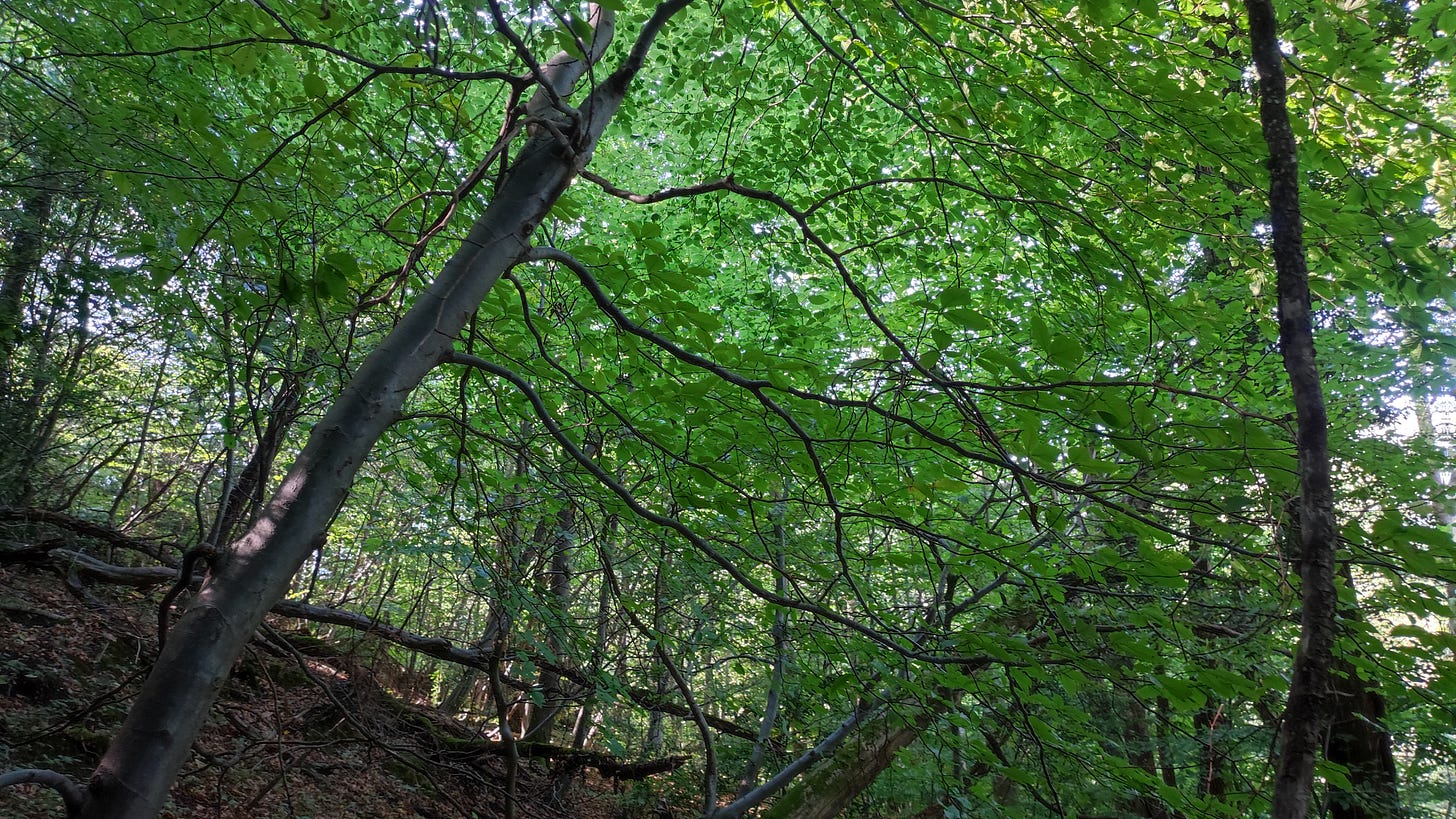
Balance
To have downtime, away from one thing or another, is an essential. Not just for me but, I’d argue, for all. Too often, we can be caught in a spiral of diminishing returns, pushing through even when the alarm bells are ringing. That is not good for the mind, for the soul.
The short description to The Crow’s Nest says this:
The notebook of a globally feral author finding balance through connection with nature, ancestral skills, and different cultures. Words and kindness.
And, last year and earlier in this one, I realised I had lost that balance. All was out of sync, all white noise, and all felt colourless and dull.
Sometimes, having a pause, stepping away, means the system is reset, and you can get back to full strength, rejuvenated. Sometimes, the pause stretches out longer.
Back in March, 2024, I decided to put a pause on drinking alcohol; I had found myself to be using alcohol as a crutch, instead of enjoying it, and thought it best to reset that system. I set myself a target of a month, which turned into two, then three. Now, it’s 545 days since I last had an alcoholic drink (I use a habit tracking app for these numbers, although there are only two streaks I keep up at present: no drinking alcohol, and no news scrolling. The latter, today, is at 909 days).
I still tell people—and myself—this is a pause; I am not worried about the two millilitres of alcoholic tincture I take every day during the winter (especially turkey tail [Trametes versicolor] fungi), but I also know I just don’t want to drink, now. I have realised that the benefits of not drinking outweigh any positives, by a considerable margin. Yet I’m also not going to preach or evangelise on this subject—why would I? It is always a personal choice.
Another Pause
Earlier this year, I knew I needed to take time off the internet, away from sharing my thoughts here and elsewhere. I needed to hit that pause and reset button. I was on the upwards curve, away from the deadening low within which I’d been swaddled for what seemed a long time, but I was not quite there, not quite back in the realm of normal serotonin, still a wee way to go.
Taking a step away from Notes, from Substack, entirely closing down my Meta accounts and, generally, being more present, apart from an online existence, was not only sensible, but essential.
Reader, it worked.
I popped in now and then, sending a few words here or there, talking about my fiction, past, present and future, and then pondering imaginary, daydream adventures, adventures which will never happen. I then shared an essay on what The Summer Book, by Tove Jansson, means to me, over on
’s Beyond the Bookshelf.Eventually, this summer, as I enjoyed time outdoors in nature, building a wall and generally reminding my body what it is to be used properly, I felt I was ready to come back. I posted a few more Notes, read a little more, and began to find my feet once again. Substack has, apparently, changed in that time. So many Notes tell me this but, from what I have seen, many of the people I call friends are still around, some also just returning after a lull. Good and kind and intriguing things are being shared, photographs of wonderful places and things, and conversations which actually matter.
Hope, Dwindling
The tipping point, as capitalism slowly dies a painful and undoubtedly violent death, was always going to be a difficult time. More so, as the world begins to suffer increasingly serious effects of our ongoing detachment from, and destruction of, nature. These are certainly interesting times we live in and, earlier this year, one of the reasons I stepped back from the internet was almost certainly due to this.
I have long espoused hope—active hope—looking at the world in ways which might make a difference, which might do some good. Yet, at some point this year, I realised my hope was shaken, it was jarred, dwindling and, for fear of losing it entirely, I took a step back to protect and nurture it, cradling what remained and trying to consider the best path toward rekindling. Telling others to be hopeful when you yourself are not seemed hypocritical and foolish.
Now, however, I am once more ready to release my hope back into the wild. She is rested, she is strong again but, crucially, she is also repurposed, retooled.
Approaching the Equinox
The following paragraphs come from one of those drafts I mentioned above. Crafted in early spring, it is interesting to see what I thought at that time, before I more consciously stepped back from the internet.
March, in this corner of the world, is the time when the green seems to concentrate her efforts once more, pushing through a vibrancy which has been lacking over winter, shrugging off her sepia and grey toned blanket and stretching for the brilliant blue sky overhead.
I too am stretching. I’ve always felt bearlike in winter, the need to hibernate, to isolate and insulate, strong. As the sun returns with a warmth carrying whispers of spring to come, I open myself up to those rays, ensure I get outside as much as possible, and enjoy the sense of awakening once more.
At least, that is the perfect situation. That is the plan. In reality, last year, I wintered far too long, spent all my spoons and borrowed more, simply to keep going, to keep doing the things so many take for granted. I hid away from the light and grew leggy and pale, a neglected seedling of sorts, left in a dark corner.
This year, I am taking steps to avoid that. I have big plans for our little garden (which is more of a yard, with very little actual space for planting in the ground, but room for containers and raised beds), and I am, thus far, sticking to those plans.
This means sun.
This means the drum of the woodpecker in the woods.
This means the drone of the bees, investigating the insect hotel, pausing a moment on my hand, or hovering just above the dusty surface of the tiles, wings pushing it away in tiny plumes, for all the world like a miniature helicopter.
This means the call of the birds, as they gather seed and cheese rind from our window ledge, as they welcome the dawn, sing the day to sleep.
It means the faintest of breezes on my face, a sudden deep cold from above, an equally surprising warmth from below.
It means the shock of stepping into deep shade from the sunlight.
Noticing the first lizards of the year, also emerging, also sunning themselves.
Gathering speedwell, violet leaves and flowers, ivy, archangel, turkey tail.
Deeply digging through impacted soil, carefully saving worm and broken pottery both, removing years of accumulated plastic rubbish, reminding the soil it can be airy and buoyant, hold seed and life once more.
Planning what to grow.
What to nurture, whether plant or soil itself.
What to harvest.
This is a long quote from that unpublished essay, but I think it helps to illustrate how I knew the right path, I just had not considered deliberately stepping back from being online. Who does, these days? An online existence, for many, is existence, and that carries peril and benefit both.
Now, as I write this piece, I am at the opposite side of the year, approaching the equinox once more, but with winter ahead instead of summer.
I am already considering what I shall plant next year, collecting seeds from this year’s plants, looking at others. We are still reaping the harvest (so many tomatoes this year, so, so many chillies, kilos and kilos of raspberries and more), and I am not only watching the signs of nature now, but actively looking forward to those the changing seasons will bring. The châtaigne (sweet chestnut) harvest, fungi, beds of leaves and the sigh of trees, the first snowflakes, the first frost. Deep drifts and bright winter blue skies above mountains clad in the season.
I am making plans, for next year, and the one after. I am setting myself real and sensible deadlines. I am thinking deeply about the order of things—whether the literal order of my work, what to finish first, what to share, when, or the order of the world at large, how one way of life is gasping, a death-rattle, whilst something different waits in the shadows, and no one truly knows the outcome.
The tech gods are not coming to save you. They are too enthralled by their dragongold, enraptured by zeroes on a balance sheet, forgetting the touch of rich forest loam on their feet. Politicians likewise, when they are not already pushed and pulled by the former. In principally western (always code for ‘traditionally white’) nations, governments have perhaps looked ahead and realised that, quite bluntly, we are fucked. They are enacting policies they think might stretch out this period of time as long as possible, policies which are simply echoes of a way of being which is now outdated. I would also argue that in non-western nations the process is similar, just with a slightly different tune.
Money Money
Capitalism, remember, is not commerce. The two are very different, something I have finally come to terms with; only took me nearly half a century. It is not wrong for me to want to make money per se—let’s face it, I have put in millions of words and untold hours polishing and honing my craft. I do not want to consider my hourly rate for all that time because, honestly, it would be risible.
I am not good at selling my work, or marketing. At least, this has been the case in the past. Now, however, I feel revitalised, ready to consider different methods to actually earn more money, all the while in an ethical and careful fashion. The irony that I have only just reached this point at a time when multiple potential perils to our very existence are not just waiting in the wings, but in some cases are already here, is darkly amusing.
(Seems a good place to pop a tip button…)
Drips Into Floods
The world as we knew it has gone. The world which lies ahead unfathomable. And we do not have much time. I should make it clear that I am not suggesting we’ll all be living in a choose-your-apocalypse-movie scenario in the next couple of years. Instead, I imagine things will go in fits and starts, slow deterioration there, sudden destruction here. Some places will prove more resilient than others. Some will be wiped off the map. Drip drip drip, flood, drip drip.
There can still be hope, however, and the first place to find that is with nature, no matter how she continues to be ravaged.
Nature is Nature
Nature is, well, nature and, to the human mind, she often contains positives and negatives. The song echoing through the dawn-woods is considered heart-leapingly beautiful, the fat rat scurrying to hide beneath a planter, almost universally frowned upon. The scent of the violets, so subtle and utterly violet, is something I never, ever take for granted, the smell of the graveyard beside us when the temperature warms—ancient and more recent decay occasionally reaching my sensitive nose—something no one would really say they enjoy; yet even these things, rat and rot, are deeply honest reminders of life itself.
We are all somewhere on this cycle, somewhere surrounded by other species’ circles, intersecting and overlaying our own, crossing our paths here, there, a frantic and furious spirograph of pattern and line and colour.
Of late, it has become impossible to ignore the state of the world. The state of the human world, and that of the natural, both. Even with my ‘no news’ diet, I see headline, comment and post enough, perhaps when I head to YouTube to check some the correct form for a kettlebell exercise, or look at the latest update from le Tour, or la Vuelta, or when I open Substack Notes, or read a letter from a friend. It is pervasive, everywhere.
As is the fact the bees were much earlier this year, the first bear garlic and first bats, similarly so. Rain just doesn’t arrive. The snow recedes higher and higher, faster and faster, year after year—and there is less of it, precipitation nowhere near what it used to be. The glaciers remaining in the French Alps are disappearing so quickly—on average, a third of their volume in 20 years—that many of the smaller ones will be gone entirely very, very soon. (Look here for more on this.) This summer, we saw vast pillars of smoke above Aude, here in France, saw ash and pieces of charcoal washed ashore, tasted the smoke and found it difficult to breathe, watching a seemingly continuous stream of planes heading to drop water. The hills burnt for days.
Rebalance the Scales
Negativity—perhaps a soft acknowledgement of unpalatable truth, of fact—is everywhere (as is utter denial, of course, we are contrary animals), accusations fly this way, then that.
Doomer!
Take your head out of the sand!
Naïve!
How can you not see what’s happening?! Do you not care?
It is impossible to escape that negativity and those voices and, personally, I find I need to keep loading extra weight on the other side of the scale, just to keep a semblance of mental balance.
And, as I took more notice in the world beyond the window, instead of the world behind the screen, I began to remember how easily I can tip things in my favour, if only I let myself. This year, I found it surprising to learn what a dance of miner bees actually weighs in my mind, or just how heavy a flourish of primroses can be on that scale.
We need to keep that balance in order to continue, in order to resist and rebel. For me, my personal rebellion has always been through a nature-charged hope, infused and channelled through my words send out into the world, clinging here, making you pause there.
Where Le Guin Comes In
If you have been reading this letter for a while now, you’ll know that I love the work of Ursula K. Le Guin, whether her fiction or non-fiction. I am sure you have probably seen several of her most quotable snippets circulating over the last wee while—she certainly has appeared on my Notes feed a lot, which makes me happy and, before I silenced them, she was also present across my Instagram and Twitter feeds. It is a good thing, how the world seems to have taken to her words (even if, as I mention below, they often truncate quotes to fit a certain aesthetic or platform).
Maybe you saw this one (or, more likely, a part of it):
I think hard times are coming when we will be wanting the voices of writers who can see alternatives to how we live now and can see through our fear-stricken society and its obsessive technologies to other ways of Being, and even imagine some real grounds for hope.
We will need writers who can remember freedom, poets, visionaries—the realists of a larger reality.
Right now, I think we need writers who know the difference between production of a market commodity and the practice of an art.
Or maybe this (from the same speech):
Books, you know, they’re—they're not just commodities. The profit motive often is in conflict with the aims of art. We live in capitalism. Its power seems inescapable. So did the divine right of kings.
Any human power can be resisted and changed by human beings.
Resistance and change often begin in art, and very often in our art: the art of words.
Then, there is this, from here:
Socrates said, “The misuse of language induces evil in the soul.” He wasn't talking about grammar. To misuse language is to use it the way politicians and advertisers do, for profit, without taking responsibility for what the words mean. Language used as a means to get power or make money goes wrong: it lies. Language used as an end in itself, to sing a poem or tell a story, goes right, goes towards the truth.
A writer is a person who cares what words mean, what they say, how they say it. Writers know words are their way towards truth and freedom, and so they use them with care, with thought, with fear, with delight. By using words well they strengthen their souls. Story-tellers and poets spend their lives learning that skill and art of using words well. And their words make the souls of their readers stronger, brighter, deeper.
I think it is important to include a few more sentences and paragraphs in these quotes than the ‘normal’ memes and images, those which float around the ether, as I think the other words are vital for the whole—that is the case for me, at least. I would urge you to read more of her work, if you have not already done so—if you have, you probably already reread many of those words and thoughts to help you through these times, words that contain true power, unvarnished truth, words that make lives stronger, brighter, deeper, just through the seemingly simple act of reading (or listening, never let anyone tell you an audiobook is not a book, that is ridiculous for several reasons).
And, just as I was rewriting this piece, I saw this, from
:We All Waver
Last year, at several points, I stopped writing and, in tandem, my reading slowed to a trickle. For days, then weeks and months, I began to think that my writing was not work, that my words did not matter, that it was all just irrelevant and, frankly, a waste of time, both my own and that of others. This is quite normal. We all waver. We all doubt. I stopped putting pen to paper or fingers to keyboard, and I determined, actively, to begin the process of resetting.
For much of 2024 and 2025, my principal reboot mechanism centred around our daughter, Ailsa. To stay upbeat, attentive, and focussed on her development and growth was not easy—it used up a lot of energy, taking all my spare spoons and then some—but it was energy ultimately well spent. By reading and sharing my interests with her, pointing out this plant or that, talking about birds, trees, animals, tracks, making fire, what is edible, what is not, what is medicine, what is poison, all these served to fan that spark within me, a spark which had smouldered for too long. Sometimes, it takes a much smaller set of lungs to rekindle a fire.
Last September (2024), this led to my decision to once again share a day by day and week by week account of that first time I headed out into the woods for an extended stay. This led to my working on a book proposal, rethinking and reforming the story, looking at what I want to share, what I want such a book to achieve. It is not simply a memoir of those months alone in nature, but something more, something deeply connected to our time. I am still pondering this now, still not entirely sure what I want to say.
I shall be sharing A Fall in Time a third and likely final time here on Substack, starting mid-September, 2025, this time with my voice reading each entry. I shall not be sending it out to anyone who has already received it, however, so as to not irritate readers—you have to sign up for the section if you want it again. (I will send out a letter, letting readers know of this, of course.)
The chain of events I detail here, in turn, led to my reconnecting to my fiction, and looking closely at the plan for this. Things have since changed a little, some I thought were necessary have been shelved, others leaping sprightly into view but, on the whole, I am once more positive about my stories, with a far clearer idea of direction.
More Than Weapons
It is too simplistic to say that words can be weapons. They can, true, but they are much, much more than that. A weapon, no matter how technical, is a simple, base, thing. Words and, by extension, writing, is something special. Back in 1820, only one in ten people in the world could read and write—now, that figure has reversed: one in ten people in the world cannot read and write. This is still very much dependant on the lottery of birth but, overall, the trend has certainly headed in the right direction.
For writers, those of us who seek a living from words, this has rather obviously increased the market, yet it has also led to the interesting observation that, because the vast, vast majority of, in this case, the English-speaking world can read and write, writing is, therefore, something everyone can do. It’s not seen as something special any longer.
Here, in France, ‘being a writer’ is different to ‘being a writer’ in the UK. As is ‘being’, for that matter. This is a topic I’ve touched on before, how the mindset here is different, how the writer is someone respected in a way which is mostly lacking in the UK. It is a much better atmosphere in which to work, if only I let it.
Much is made of the decline in reading for pleasure, in falling attention spans, in the rise of scrolling through video1 or social feeds over picking up a good book but, on the whole, the statistics do not show a fall in the sale of books. It can certainly be argued that the younger generations are not reading as many books as the older but, on the whole, the picture is not all doom and gloom.
And do not forget how important to certain genres those social feeds can be, especially TikTok (something I dipped my toe into, but have yet to use it properly). Throw out a black and white meme, Ursula K. Le Guin’s face on one side, looking wise, sage, and trustworthy, a snippet of her words on the other and this is direct advertising. It is a tiny billboard shared and liked and reshared across the world. Those words matter, and they matter widely.
I am not suggesting everyone who sees such a quote will immediately rush out to buy and read something by Le Guin (or anyone else, I’m using her here as an example) but, over time, if they keep seeing those memes, if they keep seeing that wise, take-no-shit-from-nobody face, reading those words, then they are going to sink in. Eventually, some of them will seek out more of those words.
The traditional media, the news, the thought pieces, nearly always exist to make sales or gain clicks for advertising. This is not nuclear physics, it is simple economics—get people interested in reading something and make money. Those headlines about the death of reading serve to inspire emotion, to make them think no one reads anymore, that book sales are dead in the water and I, for one, am glad I don’t really see many of those headlines.
Before I left Facebook and Instagram, I had barely used either for months, but I do recall seeing those quotes featuring Le Guin’s words begin to appear with regularity, echoing a reaction to the changes in the world order, the rise of what Carole Cadwalladr calls the Broligarchy, the rise of techno-feudalism or techno-authoritarianism.
Here, I am touching briefly on this subject. To me, I believe it is far more important to discuss how we can evade despair, how we can reconnect with the world—and with ourselves—in a healthy fashion, one which can serve as a foundation for all you do and, by extension, all the interactions you then make with the world. Do not try to save the planet or fight the largest monster you can find, that is far too abstract and, honestly, impossible. Instead, start small. Start with yourself and grow from there.
Hope is Not a Swift, Linear Process
My absence from the internet was at first accidental, I drew away to do other things then, once I realised this was the case, I decided a few more weeks of this absence, an easing into the year, made a lot of sense. Of course, world events shout loud and continuous and, even with that avoidance of most of the internet, things still seep through, pecking, baying for attention, trying to smother joy and corral hope. And that easing into the year continued, long into summer.
Hope, rather like enlightenment, is not something we can achieve overnight. It requires extensive work, questioning, and listening to the answers. It needs time and it needs effort—and it needs a diet which feeds it wisely.
Last year, before I stopped writing for that time, I did the opposite. I pushed and pushed, following paths which were, quite frankly, a vast waste of my time and mental energy. I tried to squeeze words out into different places, tried to force things, rather than let them flow. That did not serve me well, only hastening and entrenching a period of what was essentially neurodivergent burnout.
When you are carving wood, you don’t keep using the blade once it begins to dull. You don’t chop firewood with a blunt axe. Our minds are the same, they cannot be pushed and forced without sharpening. An athlete does not keep training twelve hours a day—they rest, they recover.
When I carve wood, I stop and strop regularly—this way, I don’t need to actually use my Japanese waterstones as often or, when I do, as intensively. The same with my axe (okay, technically, axes, knives, plural). Honing a blade, honing a mind, keeping it at optimum working order is how we can keep going, how we can keep working on ourselves and our own hopes which can then spread out to infect others.
We do not intentionally drag a blade across a rusty nail, or hack at a rock, so why are so many of us doing this with our minds? Step away from doom scrolling the news. It will keep doing its thing whether you spend hours a day reading or watching or listening, or not. (And, trust me, you’ll still know ‘what is happening’.)
Learn something new. Maybe you’ve always loved card tricks? Why not have a look at a book or some YouTube videos on this?
Pick up something old. Hone that skill further. Perhaps you used to enjoy sketching with a pencil, but you’ve not done it in years? Why not start again?
Read or listen to the words of others, and let them sink in. Maybe keep favourite quotes in a commonplace book (link by way of Barrie at Feasts and Fables). Revisit those words, consider what they mean, to you, to the writer, to others. Maybe start with Ursula K. Le Guin.
Stop watching the car accident in front of you quite so intently. People are going to get hurt, whether you watch or not. Instead, it is better to consider how you will help them—it is hard to administer first aid if you are also injured. Your brain, your mind, needs to recover and, for that, it needs space and time, away from the horror.
Get outside. Or open a window. A couple of years ago, in a previously paid-subscriber-only post (I’ve now lifted that paywall), entitled ‘How to Be a Naturalist’, I wrote:
When we were small, our world grew in every increasing circles. I would suggest that, to begin with, any exploration of nature and, especially, nature in connection with how we could harmoniously use and utilise it, begins with a small circle.
How small depends on you.
Perhaps you cannot get out much, but have a garden. That’s enough.
Or you walk your dog for a couple of hours a day. That’s also enough.
Or you cannot leave your home at all, but you can see out of a window. That can also be enough.
I still believe that. It doesn’t matter where you live, you will find nature. You just need to look for it, allow it back into your life and, when you find it, ask questions about all you see, seek out answers, consider problems and solutions.
It has taken me some months to get back to a place where I feel confident in sharing my words once more, in a fashion where I feel I can actually help others. With glorious hindsight, that was time well spent even if, as I passed through it, all felt slowed in thick, trapping honey, sticking me in place.
Now, however, I feel my words have recharged—they have been fed that special diet of nature and joy, gifted the flow of the work of others, slumbered, dreaming through the darkness, to pull towards the light once more.
There is an urgency to these words now, something which I have not really felt before. I was going to write ‘for a long time’ but, honestly, I am unsure whether I’ve ever felt this way before. It is an odd sensation.
Passing through a sun-bleached door in a rugged, crumbling wall, out beyond the fallow ground, I am once more surrounded by a rich, secret garden, or perhaps an ancient woodland, untouched and untidied by our human hands. I want to protect as much of the nature as I can; I want to build on the foundations I have laid, both here and elsewhere, and I want to strengthen my walls, in order to offer safety and aid for others when they need it.
A Change in Hope
When I shared my letter earlier in 2025, Make Good Soul, I demonstrated how we can all make a living document, a list of ideas by which we can help ourselves be the best version possible, all the while helping others and, crucially, nature.
Finding hope underlies a vast proportion of this process. This year, I have looked, long and hard, at my own consideration of hope, and what I hope for has changed. Two and a half years ago, I wrote that I was not on The Dark Mountain, but somewhere in the foothills. Now, however, I am certainly there. I stared again, long into the darkness, and this time the darkness did not so much stare back, as growl, showing teeth.
I do not see our current progress, progress, progress, profit-first way of life as viable.
I believe ‘the west’ will keep crumbling. I believe our climate crisis will only keep getting worse, likewise, cascading into a future which could well be a nightmare. Food crises, pandemics, war, and extreme weather. I also believe those governments I mentioned know this all too well and, to be fair to some of them, are stuck between the proverbial rock and a hard place. Some are trying to do a better job than others, who think it better to beat the drums of war, and much of the distinction depends on where their funding comes from. Even if some nations follow the right path, those that do not will ruin the party for everyone else. In my view, there is simply no stopping this.
So, faced with this, what is my hope?
I shall talk more about hope in the coming months, as I always do but, for now, it is a question of altered scale. Planning a garden is a good metaphor for this—much is experimentation, hard work and, increasingly, as the weather becomes harder and harder to forecast, luck.
My hope is a local thing, but crucially, local for us all. We need to look to our neighbours, whether human, plant, or animal, and we need to urgently make preparations for the ‘what ifs’. This does not mean hoarding toilet paper, canned food, or guns and ammunition, as some would have you believe, instead the key lies with community, with knowledge, with perseverance, and with the hope that keeping these aspects fed with all they need can see us and our children through.
My hope is that I still have time to make enough money to enable certain plans to come to fruition, working through all those drafts and notes (whilst ensuring my work remains art and not just a market commodity, a complicated tightrope involving telling truths within words made of lies), all the while creating joy for Ailsa, interacting with nature as often as I possibly can, building a strong family unit and wider community and, in general, not allowing that darkness to extinguish the light. I can see alternative ways to live. I can see through the fear, and much of that is thanks to taking a break, pausing, and slowly resetting.
And, if I do not have time to make that money, then at least I already possess certain skills which might prove useful in the future.
Hope is not an overnight success. Hope is often not success at all.
I’ll wrap up this post with a final brief quote2 attributed to Ursula K. Le Guin, one which, as is often the case with internet-isms, has no attribution and, although I tried, I cannot find where she may have written it. Still, though, it is worth sharing, because I agree with the words, more than ever:
Hope is a slow business.
This post is something of an experiment. By not sending it out to my subscriber list, I suspect not many people will read, comment upon, or share it. However, I am more than willing to be proven wrong!
How are you coping with the rapid and devastating changes we are witnessing across the natural and political spectrums? Any advice as to how to cope in the face of this? How do you spread your own hope, and how do you maintain it?
As ever, many thanks for reading. I honestly love sharing words here, and have missed that greatly. Soon, there will be many more new words to join these, along with perhaps resharing others I crafted years ago.
At the time of writing, September 2025, I am in the process of revitalising my Substack home page, a work which goes hand-in-hand with creating my forthcoming personal and professional website. There will probably (definitely) be some mistakes, so please bear with me.
If you find value in these words and wish to support me financially, but do not want to take out a subscription, you can send a one-off tip via this button:
And, finally, thank you, if you read or listened to this monster of a post. I truly appreciate that.
I love this word—how the idea of a video has altered over time; language, after all, matters.
Okay, I’d also like to add a couple more personal favourites here, such as this:
To think that realistic fiction is by definition superior to imaginative fiction is to think imitation is superior to invention.
Ursula K. Le Guin (2004). “The Wave in the Mind: Talks and Essays on the Writer, the Reader, and the Imagination”, p.210, Shambhala Publications
Or this:
If you deny any affinity with another person or kind of person, if you declare it to be wholly different from yourself - as men have done to women, and class has done to class, and nation has done to nation - you may hate it or deify it; but in either case you have denied its spiritual equality and its human reality. You have made it into a thing, to which the only possible relationship is a power relationship. And thus you have fatally impoverished your own reality.
Ursula K. Le Guin, Susan Wood (1980). “The Language of the Night: Essays on Fantasy and Science Fiction”, p.99, Ultramarine Publishing
Those who build walls are their own prisoners. I'm going to go fulfill my proper function in the social organism. I'm going to unbuild walls.
Ursula K. Le Guin (1974). “The Dispossessed”, p272, HarperCollins e-books
Hate gets going, it goes round, it gets older and tighter and older and tighter, until it holds a person inside it like a fist holds a stick.
Ursula K. Le Guin, Todd Barton, Margaret Chodos-Irvine, George Hersh (1985). “Always coming home”, Harperaudio
Do you have a favourite Le Guin quote? If so, please pop it in the comments!


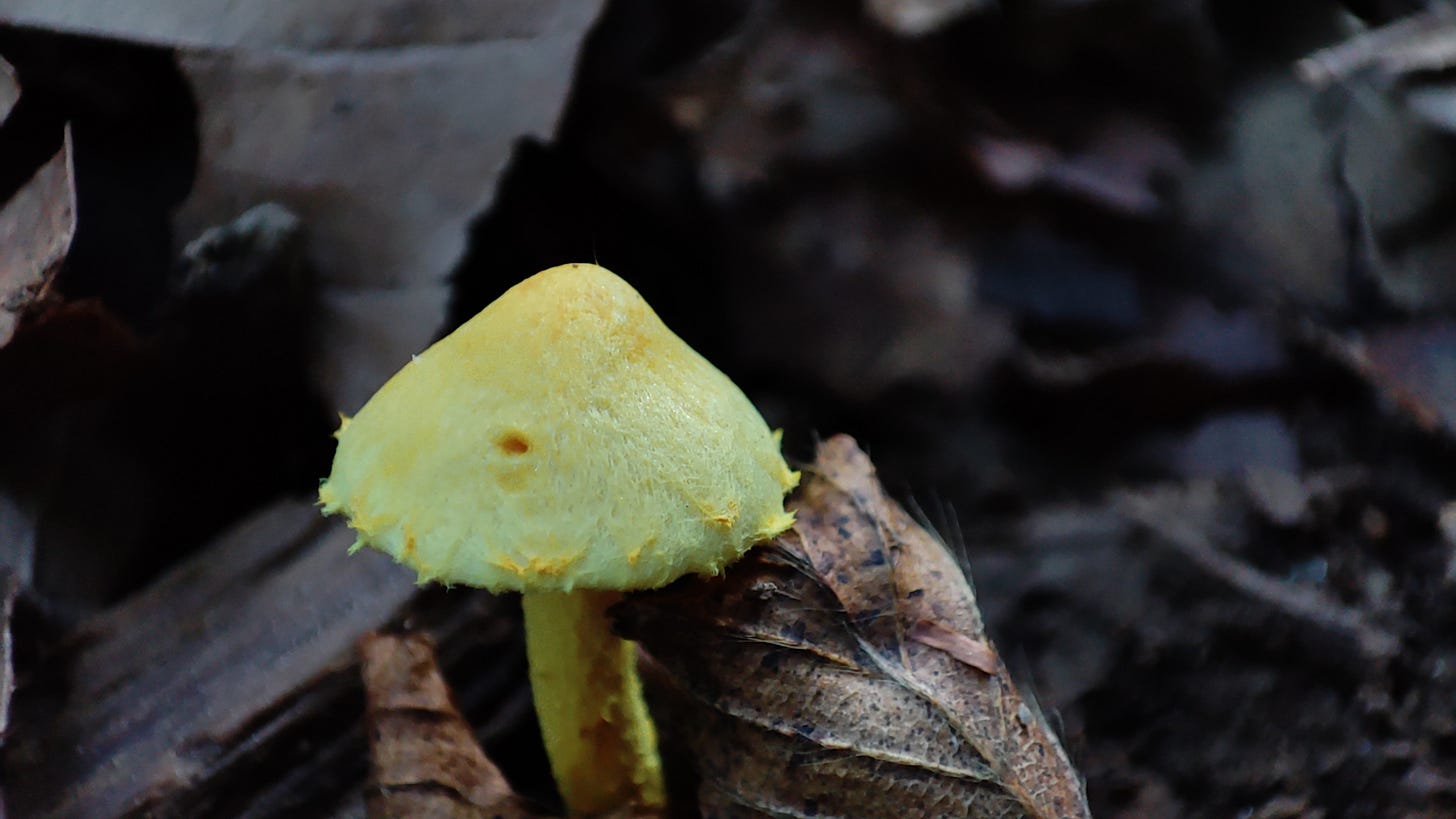
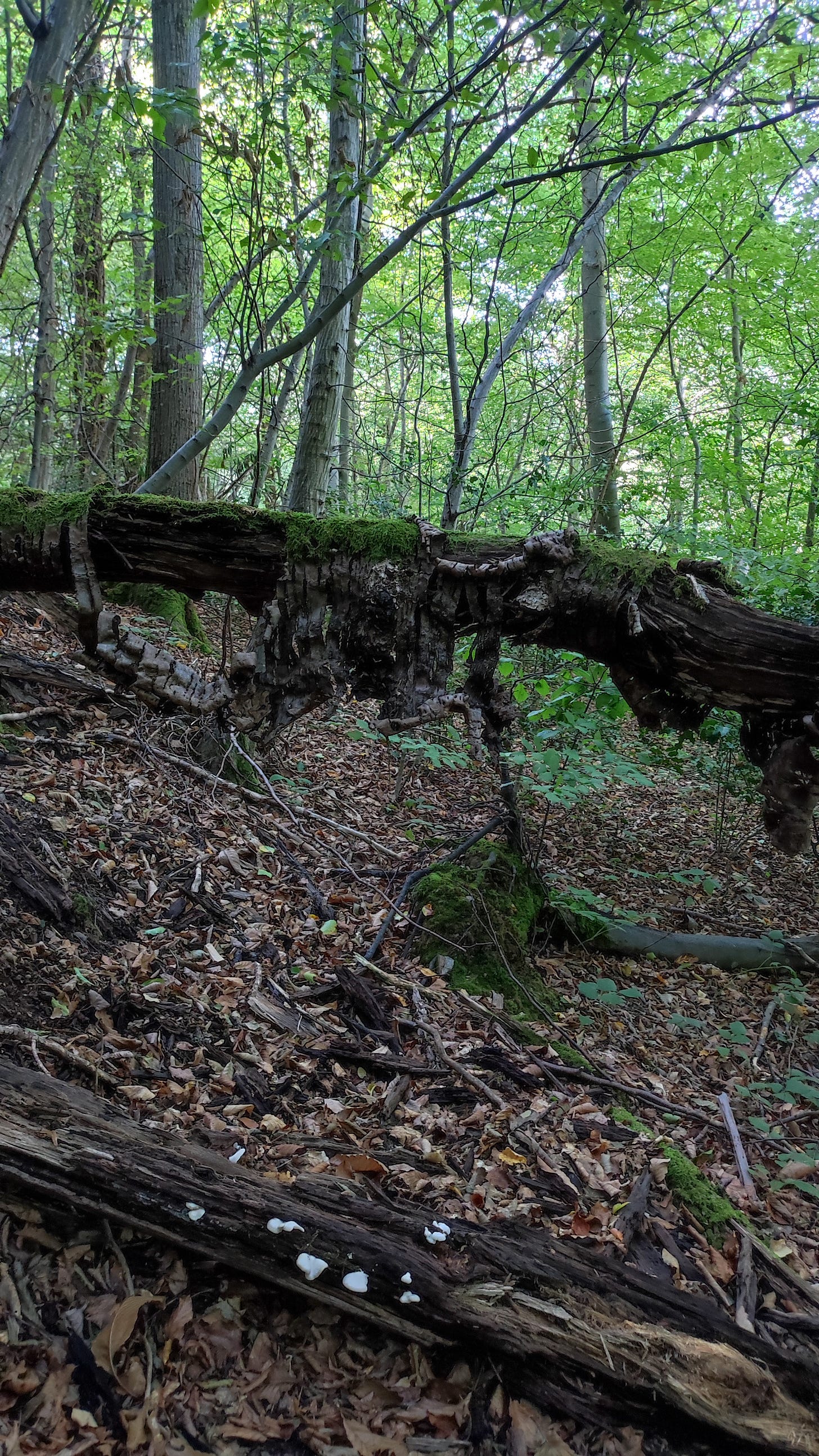
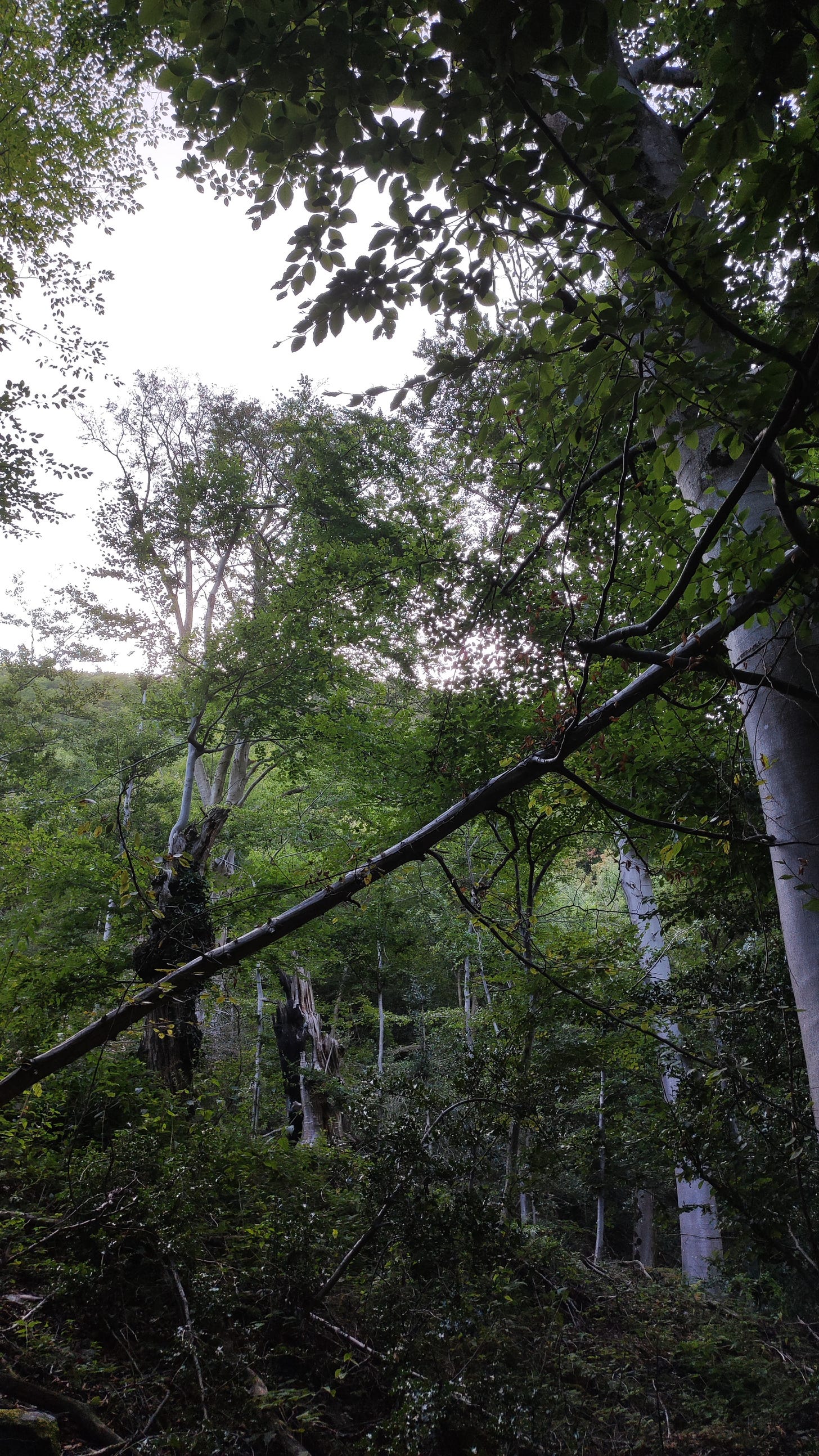
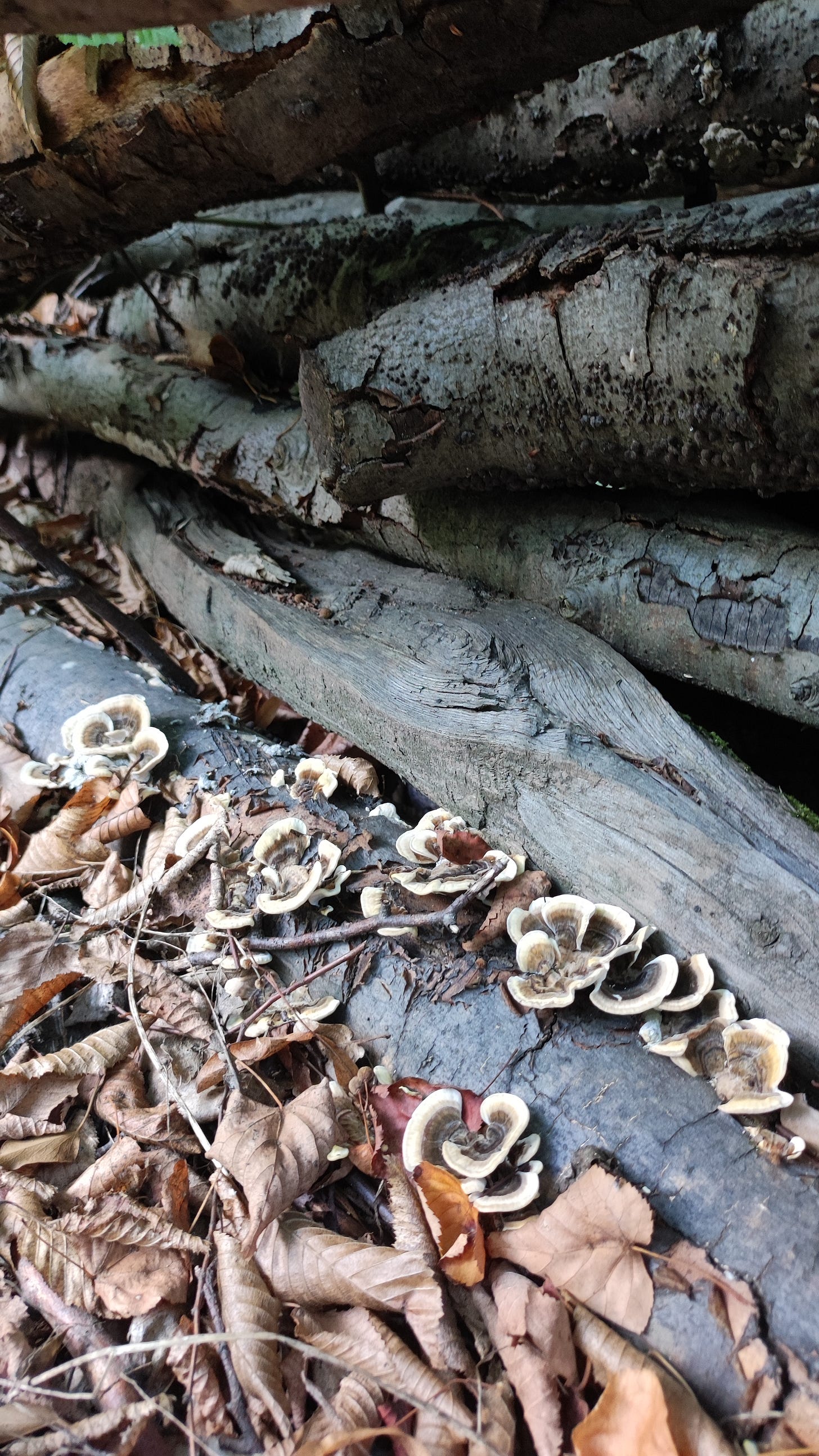
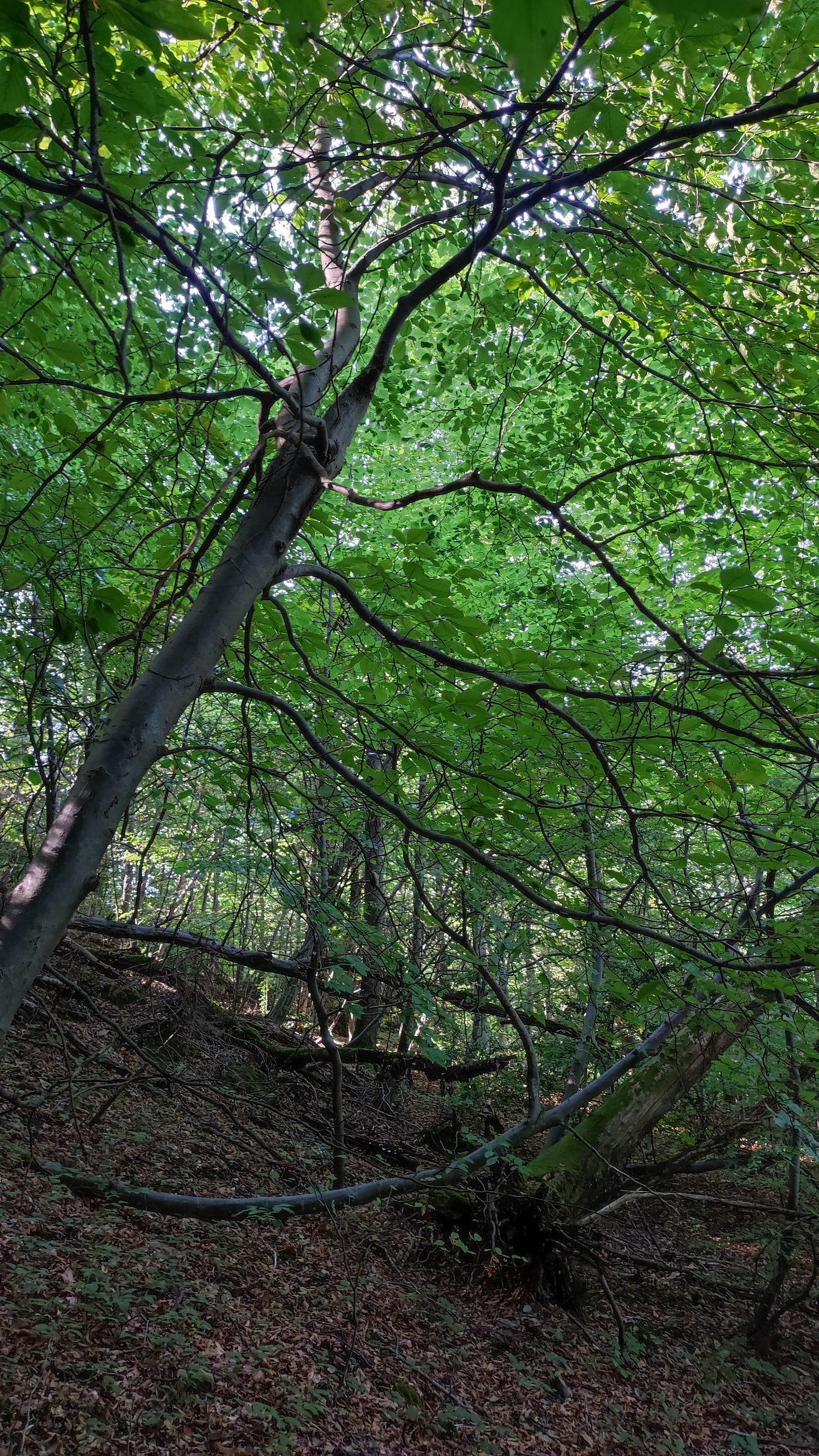
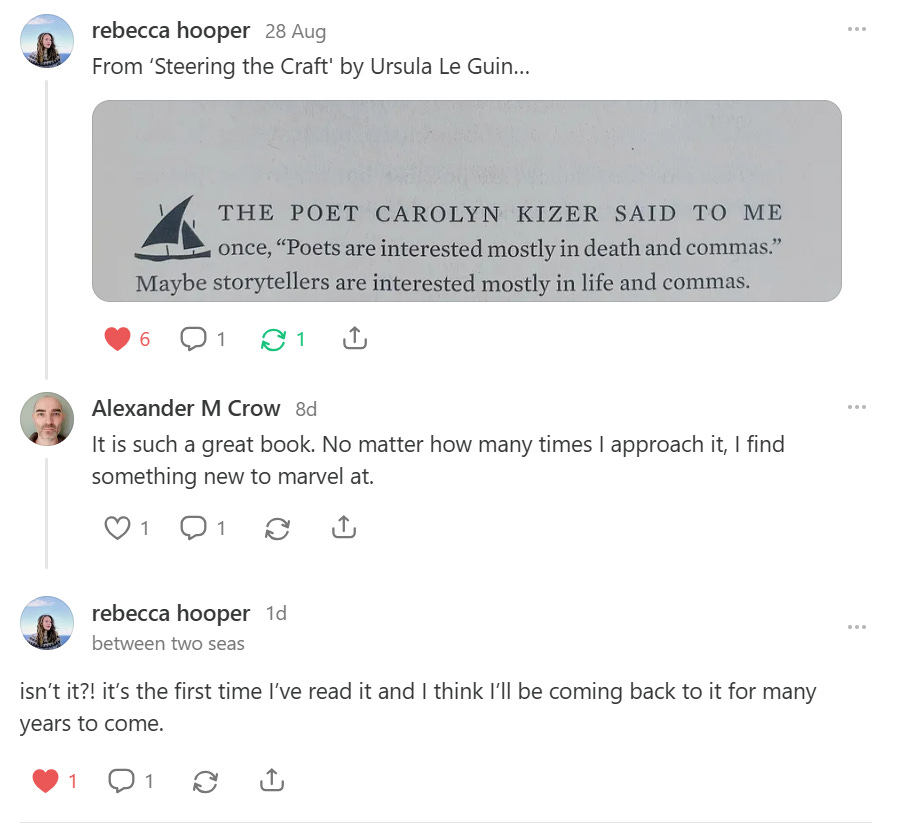
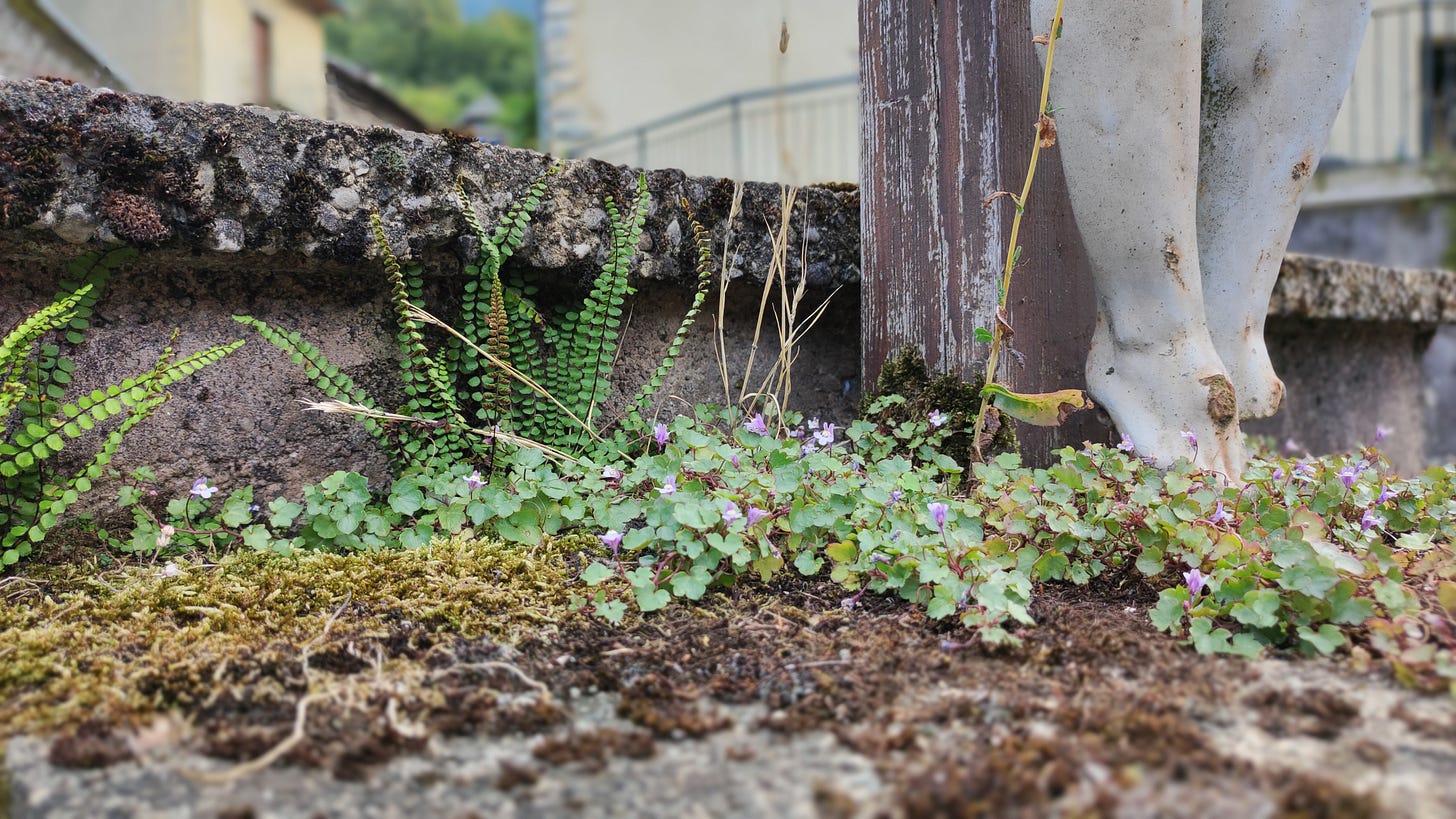
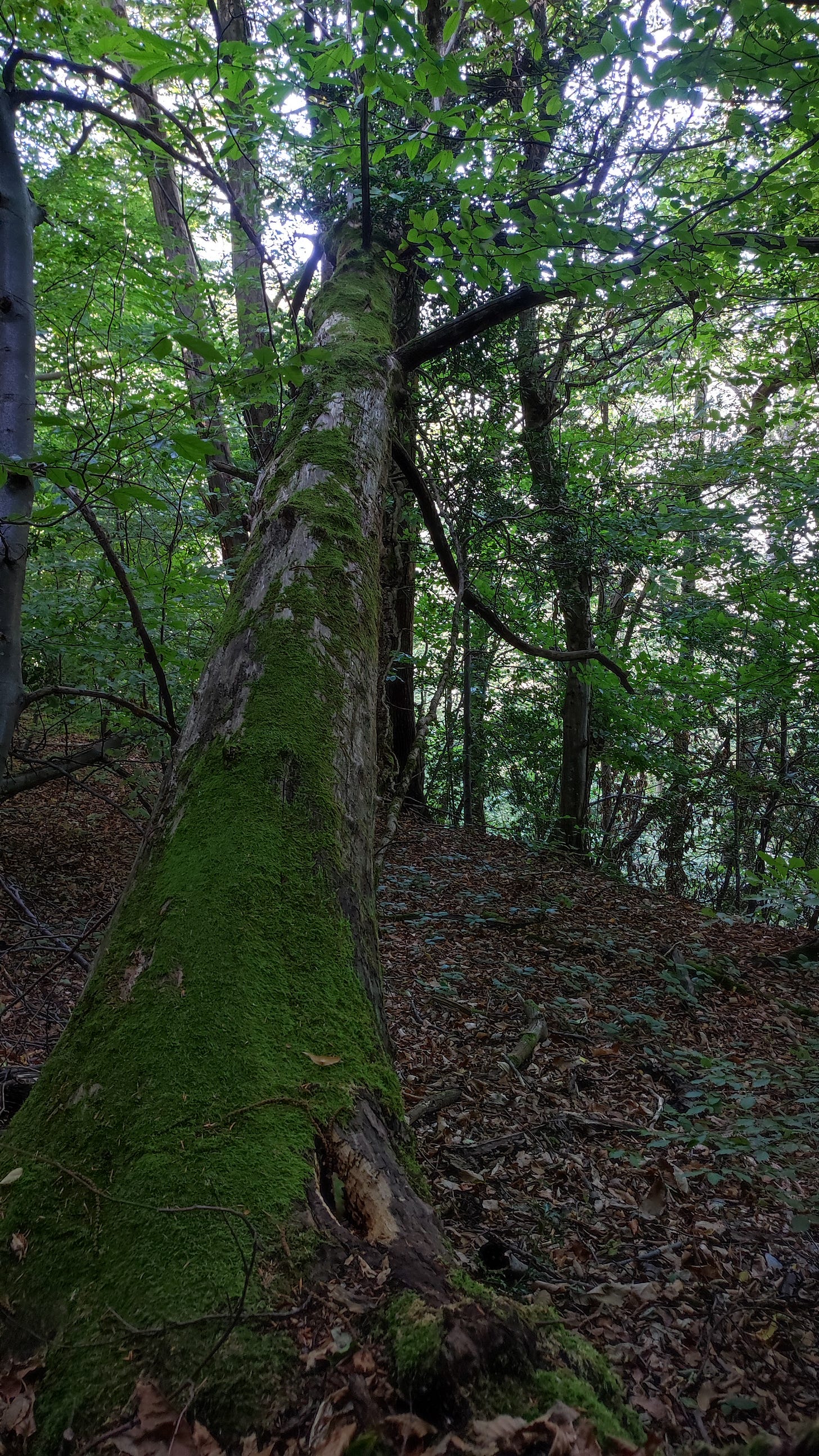
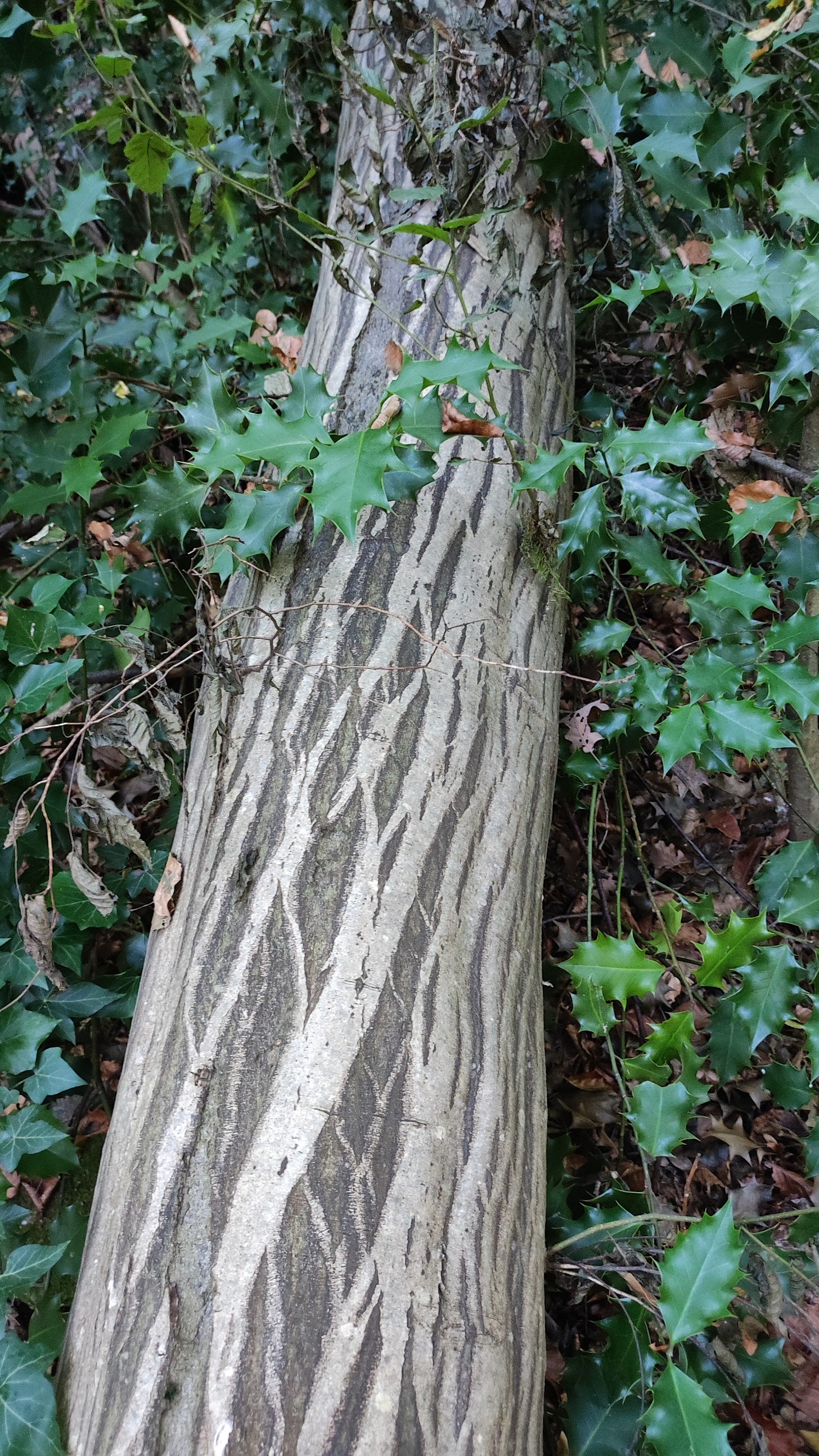
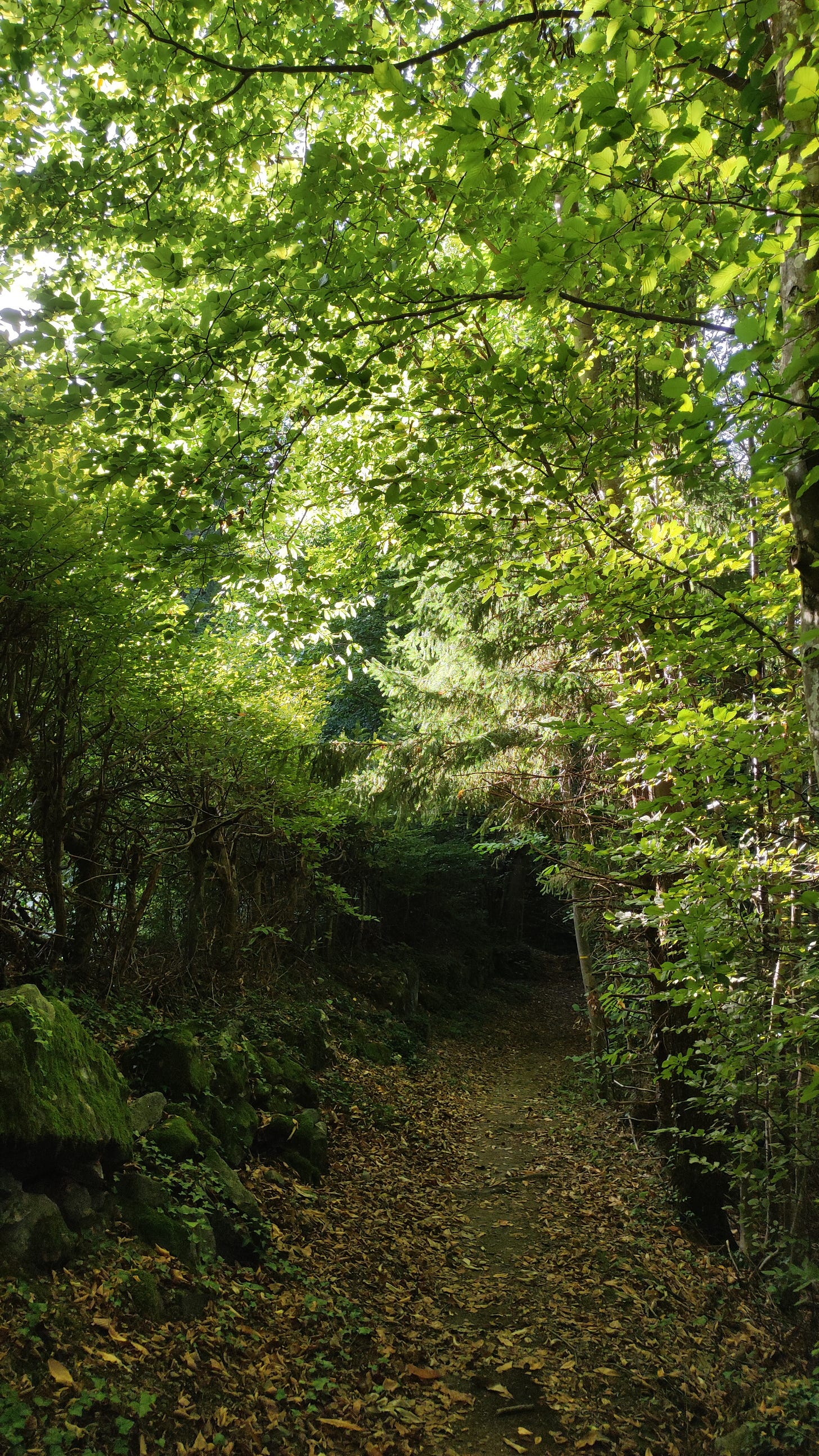
First, I wanted to thank you for this incredibly insightful piece, and for having the courage to say what I believe is true. I live in the US….we need to accept that what once was, is gone and not going to return. We do not know where things will end of course but there is no going back now. We are watching many things (systems, ideas and even individuals go through extinction bursts).
I am coping with the changes you discussed in many of the ways you mentioned. I deleted a social media account a couple years ago and just cut another one out this year.
I picked up a hobby I was interested in as a child but never got the chance to explore (drawing and water color painting). I found a lovely artist on Substack who provides tutorials weekly and have been doing them since January. We have a large garden at home and have so many cucumbers and tomatoes we are giving them away to neighbors and friends.I signed up as a volunteer at my local library last fall, and spend time there every week. (One of my happy places).
So much here to love and agree with and be joyed and saddened by. All I can say is thanks Alexander. The internet and the Tech Bro's who come to enslave, not save, are billowing dark smoke for sure. But there you are writing this so I can read it and for that anyway are there small gratitudes. Thanks for the making such good sense